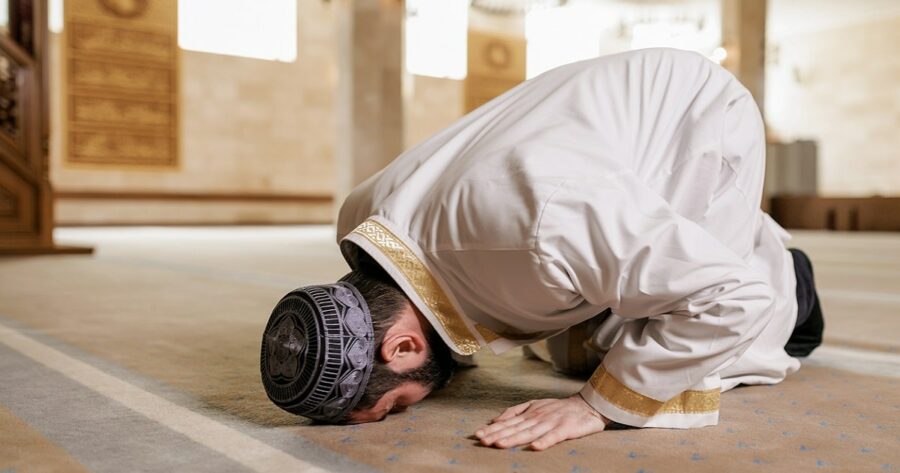Today Marks The 6th Anniversary Of The Attack On The Islamic Cultural Centre of Quebec City
- Naomi Dela Cruz
- Eastern Canada
- Trending
- January 29, 2023

Today marks the National Day of Remembrance of the Québec City Mosque Attack and Action against Islamophobia to honour the victims and survivors of a tragic event that took place on January 29, 2017, at the Islamic Cultural Centre of Quebec City. On this day, we remember the six innocent people who lost their lives and the 19 others who were injured in a horrific act of terrorism that shook the Canadian city and the entire country.
“Remember this tragedy. We pay tribute to the victims and their families. On behalf of the Government of Quebec, I salute the memory of Ibrahima Barry, Mamadou Tanou Barry, Khaled Belkacemi, Abdelkrim Hassane, Azzedine Soufiane, Aboubaker Thabti: we will never forget you.” Said, François Legault, Premier of Quebec
The attack occurred during evening prayers at the mosque, where a gunman entered the building and began firing indiscriminately at those present. The six victims were all men, ranging in age from 39 to 60, and included university professors, a grocer, and a pharmacist. The 19 injured individuals, who were also mostly men, were taken to nearby hospitals with varying degrees of injury. The attacker was later identified as 27-year-old Alexandre Bissonnette, who had expressed anti-Muslim and anti-immigrant views online.
Alexandre Bissonnette, 27, pleaded guilty to six counts of first-degree murder and six counts of attempted murder. In a court sentence handed down on February 8, 2019, Bissonnette was convicted and sentenced to life without parole for 40 years. A Quebec Court of Appeal ruled that 40 years without parole was unconstitutionally cruel and unusual punishment. It resentenced Bissonnette to life imprisonment with no chance of parole after 25 years.
The tragedy was a sobering reminder of the dangers of hate and prejudice and a call to action for those committed to fighting against Islamophobia and other forms of hate-motivated violence. In the aftermath of the attack, leaders from across the political and religious spectrum came together to condemn the violence and offer support to the affected families and the broader Muslim community.
“As Minister of Housing and Diversity and Inclusion, I encourage all Canadians to take a moment to remember and reflect on the lives callously taken at the Centre culturel islamique de Québec, and to recommit to our collective battle against Islamophobia no matter where it is found in Canada.” Said, Ahmed Hussen, Minister of Housing and Diversity and Inclusion
The Québec City Mosque Attack was not an isolated incident but rather part of a broader trend of rising Islamophobia in Canada and worldwide. The attack came at a time when anti-Muslim sentiment was on the rise, fueled by fear and misinformation about Islam and Muslims. Many Muslims in Canada and elsewhere felt a growing sense of vulnerability and fear as they were subjected to increased scrutiny, harassment, and hate crimes.
However, the response to the Québec City Mosque Attack was a demonstration of the power of community and the resilience of the human spirit. The outpouring of love and support for the victims and their families, and for the broader Muslim community, was a testament to the power of compassion and solidarity in the face of hate. People from all walks of life came together to offer their support, from volunteering at blood drives and vigils to donating money and resources to those affected.
The National Day of Remembrance of the Québec City Mosque Attack and Action against Islamophobia is an opportunity to reflect on the tragedy and its aftermath and to recommit ourselves to the fight against hate and prejudice. On this day, we remember the victims and their families and stand in solidarity with the Muslim community, rejecting hate and promoting peace and understanding.
The fight against Islamophobia and other forms of hate is an ongoing one and requires the continued efforts of individuals, communities, and governments. It requires a commitment to education and awareness-raising, to countering misinformation and hate speech, and to supporting those affected by hate-motivated violence. It also requires a commitment to creating safe and inclusive communities where all individuals are valued and respected, regardless of their religion, race, or ethnicity.








